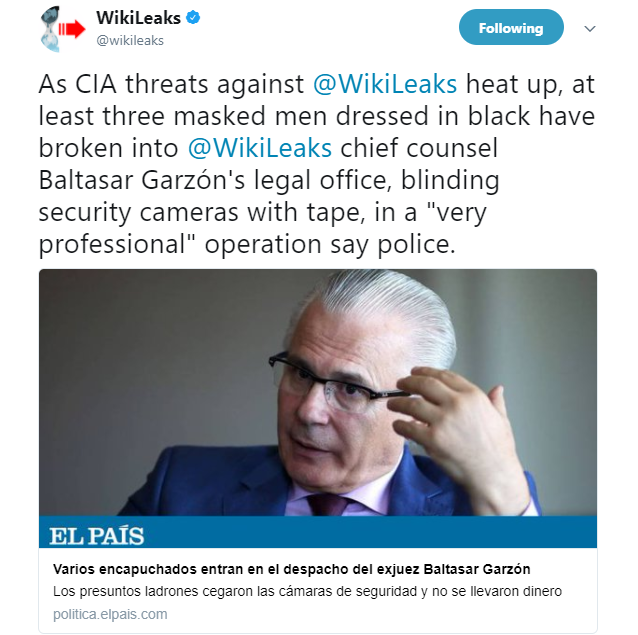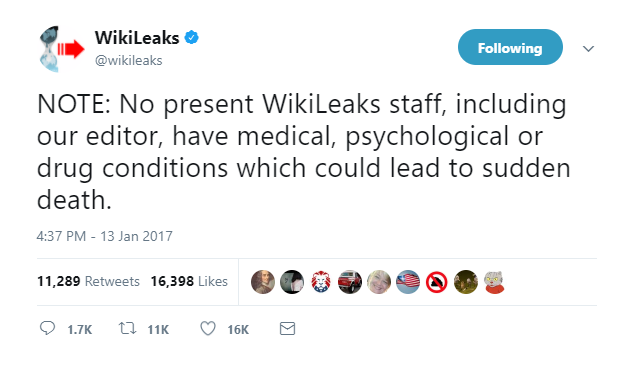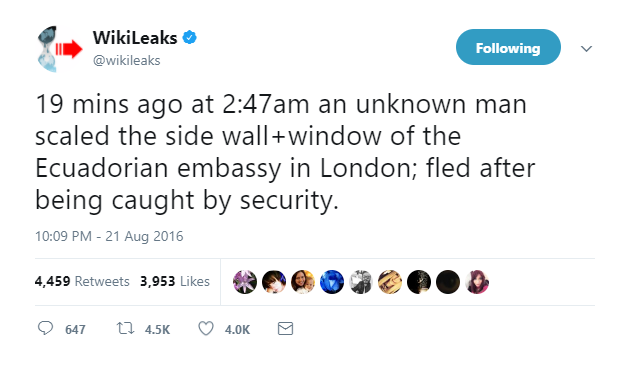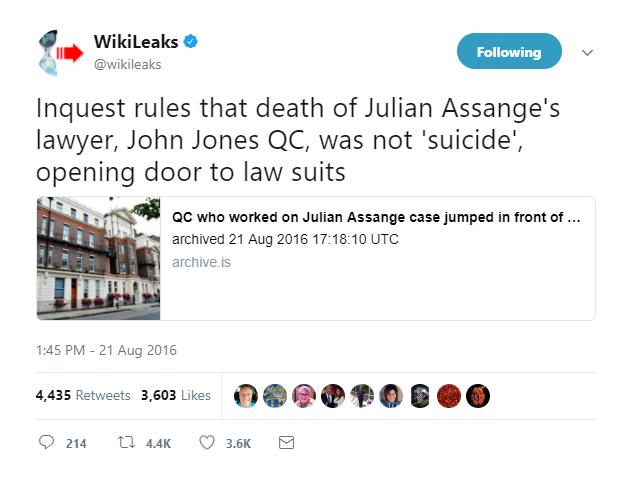
As the war against the CIA heats up, masked intruders (likely belonging to the Central Intelligence Agency) broke into WikiLeaks’ head legal council law office, EL PAÍS reported.
A total of three people dressed in all black in hoodies entered the law office of former judge and WikiLeaks’ chief council, Baltasar Garzón.
The alleged thieves were “very professional” according to police sources; they blinded the security cameras with tape and didn’t steal anything from the offices. Apparently, they have not taken any money, because there wasn’t any on the premise, the publication went on to state.
However, according to a rough translation of the report, they scrummaged between documents, although it has not yet been determined what is missing.
The investigation is being carried out by the scientific police as if it were “an attempted robbery,” they added. They are waiting for technicians to check if copies of files have been made from the computers.
Since he was removed from the judiciary, after being sentenced to 11 years of disqualification for ordering recordings – supposedly illegal at that time – between defendants of the Gürtel plot and his lawyers, Baltasar Garzón has directed, among other things, the legal defense of the founder Wikileaks, Julian Assange.
WikiLeaks and Julian Assange tweeted out the report today, expressing concern that the CIA was responsible for the break-in.

https://twitter.com/wikileaks/status/943210057906483200
Notably, WikiLeaks has faced a number of suspicious circumstances happening to its organization; so much so they have released ominous tweets highlighting that none of the organization’s employees or volunteers have any psychological health problems or drug problems that could lead to sudden death.

https://twitter.com/wikileaks/status/820021862931591168
Not to mention that WikiLeaks – the recently recognized institution of journalism by UK tribunal – had an incident last year where someone tried to break into the embassy where its founder Julian Assange has been held for the past 5 years held illegally.

https://twitter.com/wikileaks/status/767544307003772928
Shortly before that, WikiLeaks did actually have two strange deaths of lawyers who represented Julian Assange within less than a month of each other: John Jones who died on April 18th 2016; and Michael Ratner who died May 11, 2016. Jones was found dead on the train tracks at West Hampstead Thameslink station. Ratner was said by the New York Times to have died of “complications of cancer.”
The official narrative being pushed on Jones’ death was a suicide. However, the publication has seemed to hint there was potential “foul play” involved, tweeting out a ruling by a court last year shortly after the unknown man tried to climb in Assange’s balcony. The inquest found that the death of Jones was not a ‘suicide’, which opens door to lawsuits.

https://twitter.com/wikileaks/status/767417393165533184
Additionally, last year, the international whistleblower outfit had to deal with the death of Gavin MacFadyen, a close friend and confidant to Julian Assange who died of lung cancer, according to a statement posted at The Center for Investigative Journalism (CIJ) which MacFadyen founded in 2003.WikiLeaks is also facing a second blockade with its U.S. tax deductibility being threatened after its Vault 7 and Vault 8 disclosures exposing the CIA’s spying and hacking techniques. Assange has recommended WikiLeaks supporters to use cryptocurrency to donate to the organization in order to circumvent the blockcade.
WikiLeaks itself was an early cryptocurrency advocate, first starting to accept cryptocurrency donations in 2011, after a banking blockade attempted to cut off the non-profit publisher from its revenue streams. This caused widespread backlash as the international hacking collective Anonymous took down websites of Mastercard, Visa, and PayPal under Operation Payback.
Julian Assange thanked the U.S. government earlier this year in October, claiming his organization has made a 50,000 percent return on Bitcoin after investing in the cryptocurrency. Assange compared the prices of Bitcoin from July 18, 2010, and October 14, 2017, using Coinbase at the time.
The team opted for Bitcoin and later Litecoin to fund its operations, and they have since expanded recently to accepting the more secure altcoin Zcash as well.
Does WikiLeaks have a surprise up its sleeve for Christmas or the New Year? Is the CIA scared?
Relevance: deep state activityCurated for #informationwar by @stevescoins